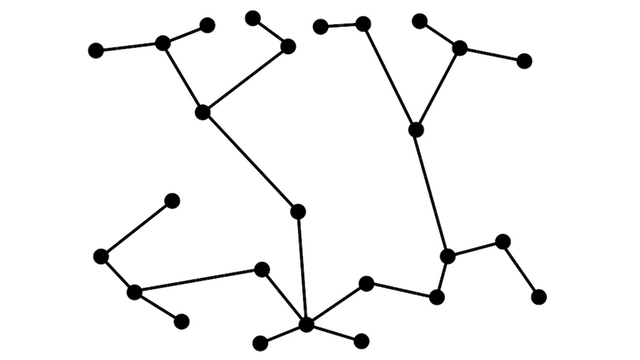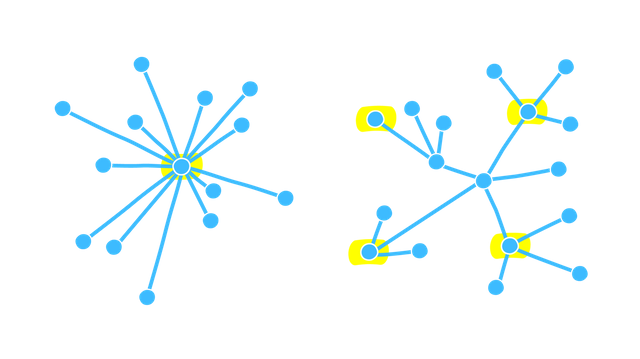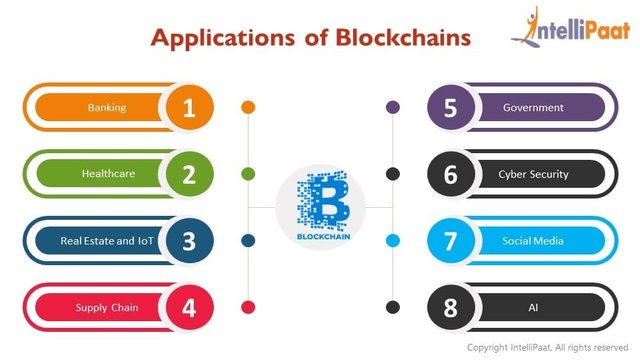Steemit Crypto Academy Season4 Beginners' Course-Homework post for Task 4: Blockchain, Decentralization, Block explorer by @kingmyke
![Screenshot_20210919-043426_Canva[1].jpg](https://steemitimages.com/640x0/https://cdn.steemitimages.com/DQmWEihXFpNyXAdZzGQBa3esHKLkMnY9RrzYNBFshLQZhUZ/Screenshot_20210919-043426_Canva[1].jpg)
INTRODUCTION
Good day everyone. My name is Amaechi Michael, username name @kingmyke and in this post I will be answering no. 2 of the assignment given by Professor @yousafharoonkhan here. Thank you professor for the wonderful lecture.

Task 4: Question 2
Define decentralization.
Describe the advantages and disadvantages of a decentralized system.
In what areas of life can a decentralized blockchain be helpful?(write in own words)

1. DEFINE DECENTRALIZATION
Decentralization can be defined as a process, system or mechanism in which control, regulation, co-ordination and any matter pertaining to the affairs of a system is not determined by a single authority, be it a single person, group of people or an organization.
In a decentralized system, the power to control affairs is, however, given to the different components and subunits of the entire system. In decentralization, the power to make decisions and co-ordinate the affairs pertaining to the system has been delegated to the different subunits that makes up the system.
An example of a decentralized system or example of decentralization is a form of government where the legislative power of the sovereign country does not resides with the central government but with the individual regional or state governments. These individual governments are in charge or making the decisions and handling the responsibilities of their state without any interference from the central government. Each individual state government has total power over its own resources and distributes it as they choose without being controlled by the federal government.
This is in start contrast to centralization where the power to make decisions and control affairs is under a single authority.
Since we are talking about decentralization, it would be appropriate that we discuss some characteristics of a decentralized system to get to know different ways of identifying a decentralized system and contrast it with a centralized system.
A great example of a decentralized system is the Decentralized Exchange (DEX) in cryptocurrency trading.
An Exchange is simply a platform upon which buying and selling activities occur.
Decentralized Exchange is a type of exchange for cryptocurrency that makes use of a peer-to-peer cryptocurrency transactions between buyers and sellers without the need of an intermediary or "go-between" or "middleman" and in which these transactions are solely free from any control from a single authority.
Below are Decentralized Exchanges on www.coinmarketcap.com.
Note: These are screenshots from www.coinmarketcap.com.
These exchanges allow people to buy and sell cryptocurrencies without the need of a third-party.
.png)
.png)

CHARACTERISTICS OF A DECENTRALIZED SYSTEM
We would be looking at some characteristics of decentralization:
1. Individuality of power and authority:
This is the very definition of the word, decentralization. This means that each individual subunit, participant, group, etc is in charge of their affairs and that authority is not in the hands of any singular person or body.
2. Increased level of accountability:
Due to the fact that each individual component, participant or subunit in the system is in charge and control of their affairs, decentralization causes them to be fully accountable and responsible for all the actions they take.
3. Quicker decision making process:
Due to fact that each subunit controls their affairs, they need not wait for the central authorizing body to make decisions on their behalf as well as the behalf of the entire organization. Since a central body would need to take into consideration the entire system or organization, they could take longer time coming up with decisions that they feel would be for the best for the entire system or organization.
This is not so in decentralization as each individual unit control their own affairs and can easily make and readjust decisions that would concern only hem as they need not go through the arduous process of taking the entire system into consideration.
4. Encourages Lots Of Experimentations:
Might sound counterproductive but this is a major bonus for a decentralized system. Due to the fact that a decentralized system can make decisions more rapidly and re-strategize and readjust more quickly than a centralized system, this would encourage an environment of learning.
Participants can experiment new ideas knowing that the system allows for them to move quickly, try new things and can always change decisions quickly when new ideas prove unfruitful.
For example, if Apple runs on a decentralized system where its individual subunits are allowed to make their decisions and run tests themselves without passing it through the central administration (ie, CEO or Board Of Directors), these gives each individual department to b free to try out many ideas and explore different opportunities in order to make even better products and services for their customers.

Now let's look at how a decentralized system differs from a centralized system
CENTRALIZED VS DECENTRALIZED SYSTEM
| DECENTRALIZED SYSTEM | CENTRALIZED SYSTEM |
|---|---|
| Power is not in a single authority but is dispersed throughout the organization | Power and control is under a single authority or hands of a selected few |
| Communication tends to be more open and often informal | Communication is from management to subordinates (vertical flow of information) and is mainly formal |
| It is most suited for organizations with a lot of people | It is suited for organizations with a small number of people |
| Decision making does not take time because decision making are more frequent and quickly action-oriented | Decision making takes time because the power is in a single authority. |
| This system is highly motivating to the workers involved. | This system is less motivating to workers and subordinates. |

2. DESCRIBE THE ADVANTAGES AND DISADVANTAGES OF A DECENTRALIZED SYSTEM
ADVANTAGES
It promotes growth of the organization: This is because as the different subunits exercise power over their resources, they have the ability to develop managerial and leadership skills hat can be beneficial to the growth of the organization.
Also, decentralization creates healthy competition amongst subunits and this helps foster growth.It lessens the burden on the top management: With decentralization, the subordinates are able to make their own decisions on their own. This lessens the burden on top management, giving them the time and opportunity to focus on more important and long-term tasks.
Enhances Expansion: Decentralization enhances expansion of an organization by allowing for more separate parts of the business to be located in different areas or parts of the world. A decentralized shoe business can expand if more and more of the business are created in different locations and each location governs its affairs to enjoy the efficiency and effectiveness that decentralization brings, leading to business expansion.
Enhances motivation amongst subordinates: This is in the sense that decentralization breaks larger groups into smaller units. These smaller units tend to form much stronger and less formal interpersonal relationships. This helps to keep each participant motivated.
High speed in the decision making process: This is because the separate units need not send their ideas to the central authority for verification as they (the subordinates) are closer to the field of action and can quickly experiment their ideas to get quick feedback.
Security: Since the entire system is not under any singular control, it is less prone to damage by hackers or faulty online problems as everything is not in the hands of as singular authority.
Prevention of fraud (Transparency): Due to the fact that blockchain are basically ledgers that are open to everyone and that a lot of miners all over the world are involved in the process of validating transactions and no single miner is in charge of validating these transactions, it is difficult to commit fraud. This ensures a high level of transparency amongst miners.
DISADVANTAGES
It can tend to be difficult to co-ordinate when needs be: This is because of the individuality of power enjoyed by the different subunits. This makes it quite difficult to co-ordinate the general organization of the entire system when needs be.
It is cost-intensive: To establish a decentralized system requires a lot of money. Take for instance establishing a anew business unit in a different geographical area. This is capital-intensive when you take into serious account the cost of new labor (as you would need to pay the new workers), cost of building equipment (if the new business unit will be a physical one), etc.
Sometimes there is issue of lack of qualified personnel or specialization. This is because a lot of people are involved and that power is even distributed and given to these unskilled persons.

IN WHAT AREAS OF LIFE CAN A DECENTRALIZED BLOCKCHAIN BE USEFUL?
Decentralized blockchain will help do a lot in the modern world to make the way things are done much easier and efficient. Here are 3 areas that decentralized blockchain will help improve our daily living:
INSURANCE:
Blockchain technology can help in the insurance industry via a proof-of-insurance information. In this way, all the information containing the person being insured in put into the blockchain and the person's information can be accessed quickly an conveniently from any part of the world.
It will help law enforcement agencies and the insurance companies to be able to very insurance coverages as well as make insurance payments faster and more efficient.
RETAIL INDUSTRY:
There is an increase in the selling of fake products even by prominent retail companies. This is leading to an increasing diminishing trust between retail companies and final consumers.
Via decentralized blockchain technology, a retail company can watch and keep record of all their produce from the point of manufacturing up to the point here the produce is given to a customer.
When customers have access to this information, they can be the the movement of the product up to the point when it arrived to them and be sure of the transparency of the retail company.
GOVERNMENT:
The issue of bad governance, corruption, embezzlement and so on is not a recent development as this has really damaged a lot of countries.
If the financial and monetary transactions of the government are placed in a decentralized blockchain, It will radically improve the transparency of government of operations as individuals can now see the flow of monetary and financial government funds and know if a government is trustworthy or not.

CONCLUDING REMARKS
The development of decentralized blockchain technology is radically changing the way different operations are being carried out in the world. As time goes on, more and more human operations will tend to move online and into the blockchain as transparency is a highly sought out virtue in the world we live in today.
Blockchain is a big answer to transparency problems.
We have also looked at the meaning of decentralization, how it differs from centralization and its advantages and disadvantages.
Thank you so much Professor @yousafharoonkhan. This was a very wonderful lesson and exercise as I personally learnt a lot through it.
Cc:
@sapwood
@yousafharoonkhan




